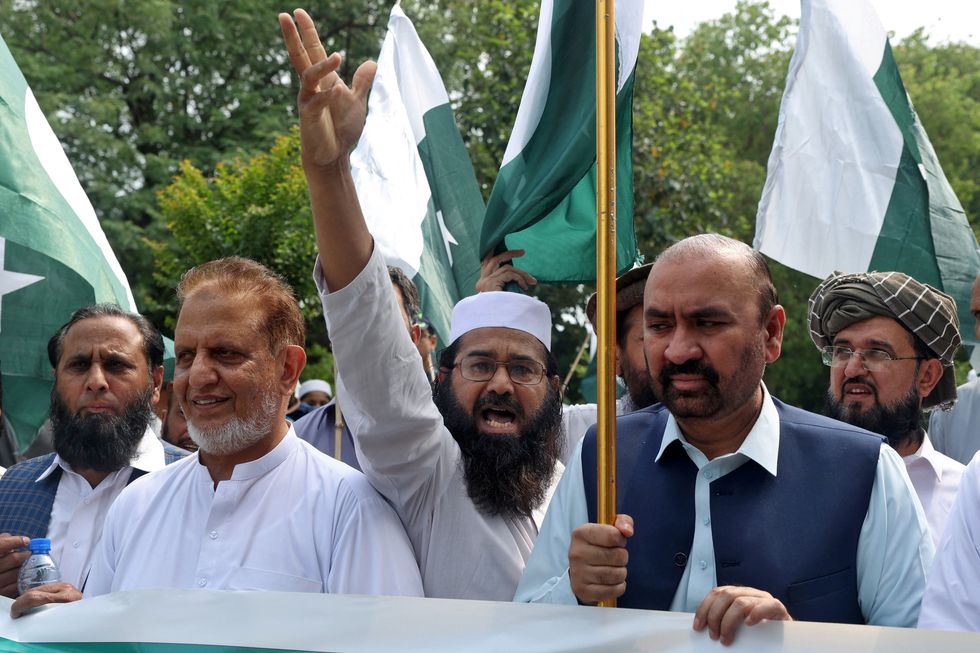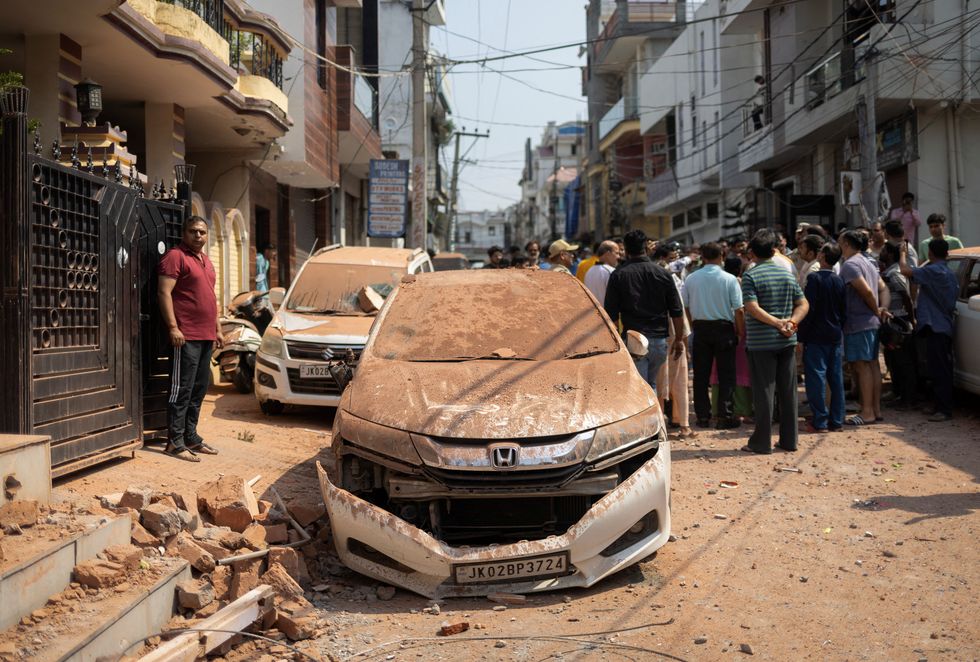PAKISTAN launched counterattacks against India on Saturday (10) after three of its air bases were struck overnight, and as the conflict between the neighbours spiralled towards a full-blown war that sparked calls against "miscalculation".
Indian Wing Commander Vyomika Singh told a briefing on Saturday there were "several high-speed missile attacks" on air bases, but "limited damage" to equipment.
Pakistan earlier accused India of targeting three of its bases with missiles -- including one in Rawalpindi, some 10 kilometres (six miles) from the capital, Islamabad.
Authorities in Pakistan-administered Kashmir said 11 civilians were killed by Indian shelling overnight.
In a live broadcast aired by state television in the middle of the night, Pakistan's military spokesman Ahmed Sharif warned: "Now you just wait for our response."
Pakistan's defence minister said that no meeting of the top military and civil body overseeing the country's nuclear arsenal had been scheduled following a military operation against India.
Pakistan's military said earlier that the prime minister had called on the authority to meet. The information minister did not respond immediately to a request for comment.
"This thing that you have spoken about (nuclear option) is present, but let's not talk about it - we should treat it as a very distant possibility, we shouldn't even discuss it in the immediate context," Pakistan defence minister Khawaja Asif told ARY TV.
"Before we get to that point, I think temperatures will come down. No meeting has happened of the National Command Authority, nor is any such meeting scheduled."
Later Saturday, prime minister Shehbaz Sharif told senior officials "we have given India a befitting response and avenged the blood of our innocent citizens", his office said in a statement.

The clashes, involving fighter jets, missiles, drones and artillery, are the worst in decades and have killed more than 60 civilians.
The fighting was touched off by an attack last month in the Indian-administered side of disputed Kashmir that killed 26 tourists, mostly Hindu men, which Delhi blamed on Islamabad.
India accused the Pakistan-based Lashkar-e-Taiba -- a UN-designated terrorist organisation -- of carrying out the attack, but Islamabad has denied any involvement and called for an independent probe.
The countries have fought several wars over the Muslim-majority Kashmir, which both claim in full but administer separate portions of since gaining independence from British rule in 1947.
In a series of calls to senior officials in both countries, US Secretary of State Marco Rubio urged them to restore direct communication to "avoid miscalculation".
Rubio "emphasized that both sides need to identify methods to de-escalate and re-establish direct communication to avoid miscalculation", State Department spokeswoman Tammy Bruce said.
For the first known time since the conflict erupted, Rubio also spoke with Pakistan's army chief, considered the country's key powerbroker.
China also made a similar appeal as did the G7 group of industrialised nations.
The overnight Indian attack on the Rawalpindi air base could be heard from Islamabad.
The air base is used to receive foreign dignitaries, and Saudi minister of state for foreign affairs Adel Al-Jubeir had departed just hours earlier.
Separately, AFP journalists reported loud explosions in Srinagar, the capital of India-administered Kashmir.
A police officer speaking on condition of anonymity said the Awantipora military airbase outside the city had been struck.
"Pakistan's blatant escalation with drone strikes and other munitions continues along our western border," the army said on X.
The army said "multiple enemy drones were spotted flying over" a military cantonment in Amritsar in Punjab, a state adjoining Kashmir, and were "instantly engaged and destroyed by our air defence units."
In Jammu, Indian-run Kashmir's second biggest city, people scrambled to board a special train dispatched to ferry people out.
"There are loud explosions the entire night," said Karan Varma, a 41-year-old mason.
"There is no choice but to leave".
The overwhelming majority were poor labourers from other parts of India seeking to return to their homes.

On Friday (9), the Indian army said it had "repulsed" waves of Pakistani attacks using drones and other munitions overnight, and gave a "befitting reply".
Pakistan's military spokesman denied that Islamabad was carrying out such attacks, and vowed revenge for India's initial strikes, on Wednesday.
Pakistani military sources said its forces had shot down 77 drones, with debris of many incursions seen by AFP in cities across the country.
Pakistan's military early Saturday claimed New Delhi's forces had bombed their own territory in Amritsar, without providing evidence.
Armed groups have stepped up operations in Kashmir since 2019, when Indian prime minister Narendra Modi's Hindu nationalist government revoked its limited autonomy and took the state under direct rule by New Delhi.
The countries have fought several wars over Kashmir, which both claim in full but administer separate portions of since gaining independence from British rule in 1947.
The conflict has caused major disruptions to international aviation, with airlines having to cancel flights or use longer routes that do not overfly the India-Pakistan frontier.
India has closed 32 airports, while schools in areas close to the border on both sides were shuttered, affecting millions of children.
Pakistan' aviation authority said its airspace would be closed until noon on Sunday (11) (0700 GMT).
(Agencies)



















